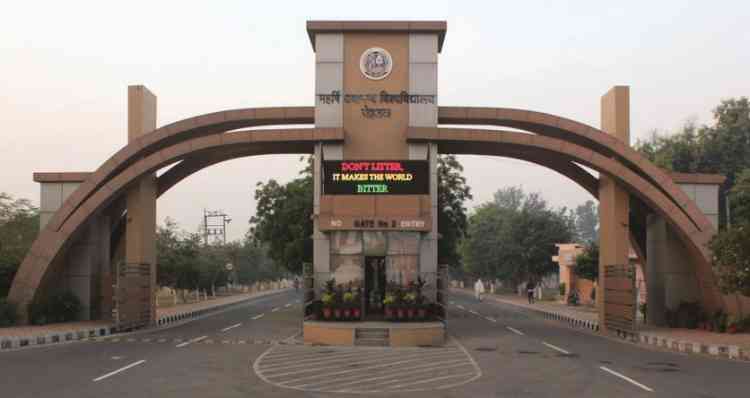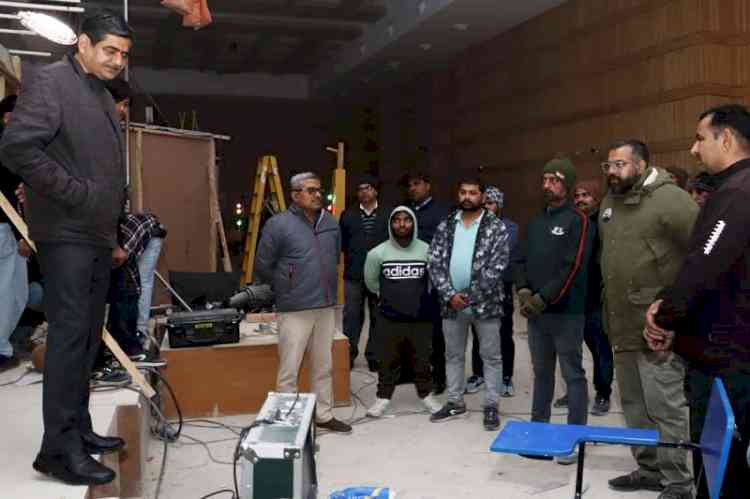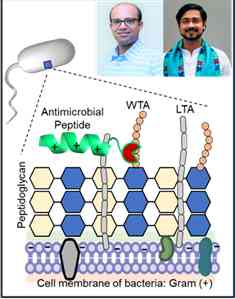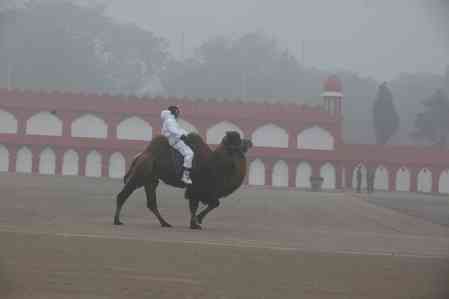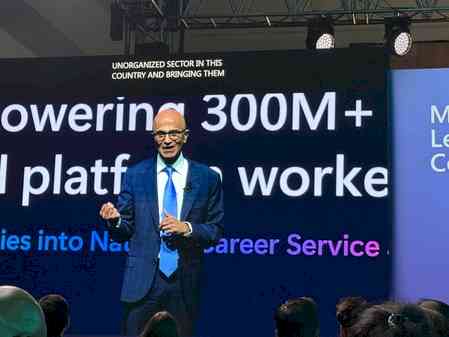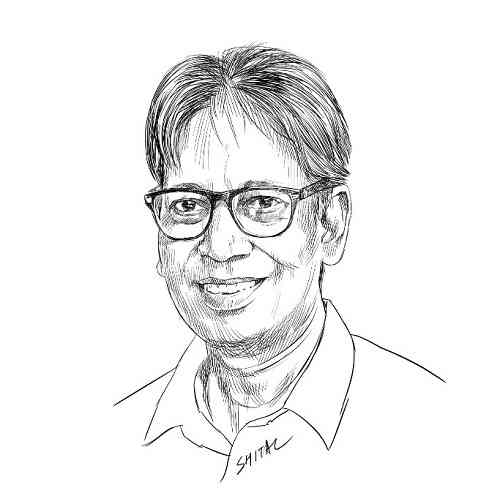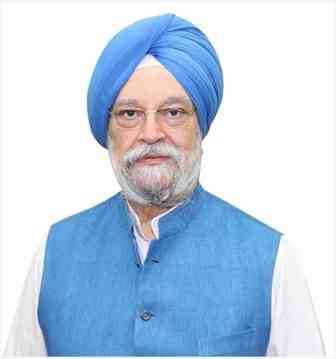Central University of Punjab Celebrates Lohri and Makar Sankranti with Special Lecture by Vice-Chancellor on 'Contextualizing Ancient Indian Education System'
The Central University of Punjab celebrated Lohri and Makar Sakranti with a thought-provoking special lecture delivered by Vice-Chancellor Prof. Raghavendra P. Tiwari. The lecture, titled 'Contextualizing Ancient Indian Education System,' provided deep insights into the traditional knowledge frameworks and their relevance in modern education.
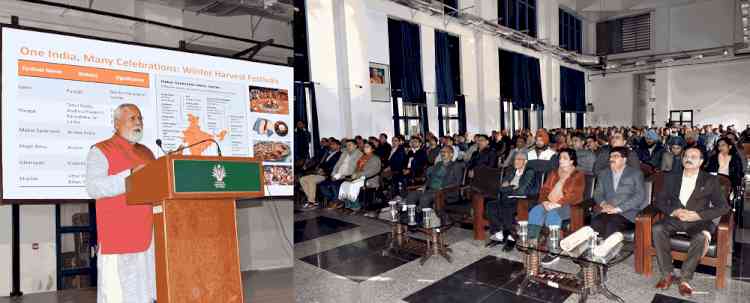
Bathinda, January 14, 2024: The Central University of Punjab celebrated Lohri and Makar Sakranti with a thought-provoking special lecture delivered by Vice-Chancellor Prof. Raghavendra P. Tiwari. The lecture, titled 'Contextualizing Ancient Indian Education System,' provided deep insights into the traditional knowledge frameworks and their relevance in modern education.
Addressing the faculty and staff members, Prof. Tiwari explained the 'Pancha-Kosha-Vishleshana' concept from the Taittiriya Upanishad, which describes the five sheaths of human existence: Annamaya Kosha (physical body), Pranamaya Kosha (vital energy), Manomaya Kosha (mind), Vijnanamaya Kosha (intellect), and Anandamaya Kosha (bliss). He emphasized how this holistic model integrates intellectual, physical, emotional, and spiritual development, highlighting the importance of balance in education.
Prof. Tiwari elaborated on the 'Four Purusharthas' — Dharma (righteousness), Artha (prosperity), Kama (desires), and Moksha (liberation) — and emphasized blending material and spiritual learning for a fulfilling life. He cited the first sloka of the Badrayan Brahma Sutra, “Athato Brahma Jijnasa..” (अथातो ब्रह्म जिज्ञासा..), underscoring the importance of curiosity and inquisitiveness in the teaching-learning process.
The Vice-Chancellor also referred to the Prashna Upanishad, where students are encouraged to demonstrate commitment, aspiration, and moral purity before receiving knowledge. He highlighted how this interactive style in teaching, question-driven method, fosters self-directed learning and critical thinking.
Citing a verse from the Vishnu Purana, “Tat Karma Yan na Bandhaya” (तत्कर्म यन्न बन्धाय), which suggests that true knowledge liberates from natural limitations, Prof. Tiwari described how ancient education was deeply rooted in scriptures, philosophical texts, and cultural traditions, focusing on holistic education and character building.
Connecting ancient principles with modern global educational frameworks, he drew parallels with UNESCO's four pillars of education: Learning to Know, Learning to Do, Learning to Live Together, and Learning to Be, emphasizing India's ancient wisdom of Vasudhaiva Kutumbakam (वसुधैव कुटुम्बकम्). He also cited Swami Vivekananda’s teachings that education should focus on life-building, man-making, character-building, assimilation of ideas, and the manifestation of perfection already inherent in man.
Prof. Tiwari stressed the importance of lifelong learning and skill development, emphasizing the ancient Guru-Shishya tradition. He highlighted that NEP-2020 integrates the ancient wisdom of Acharya Haradatta, mentioned in Apastamba Dharmasūtra, which states: “Āchāryāt Pādam Ādatte..” (आचार्यात् पादमादत्ते...)—knowledge is acquired progressively: one-fourth from the teacher, one-fourth through self-effort, one-fourth through peer discussions, and the remaining one-fourth over time and with experience. This principle aligns with the four quadrants of MOOCs. The policy emphasizes a collaborative approach, inspired by the Rigveda’s Model of Collaboration, to develop 'Glocal' problem-solving competencies in learners.
In concluding his lecture, Prof. Tiwari advocated for the integration of ancient Indian wisdom into present-day Higher Educational Institutions (HEIs). He stressed the importance of focusing on 'how to learn' rather than 'what to learn' to promote lifelong learning and adaptability. He emphasized the need for continuous skill development and aligning learning with professional growth, empowering young minds to contribute to the creation of a Viksit Bharat by following the principle of Learn, Earn, and Return. He urged teachers to reimagine their roles, reinvent themselves, and draw inspiration from the ancient Bharatiya tradition, calling for a teaching model where educators evolve from being mere information providers (Adhyapak) to mentors and visionaries (Drishta and Guru).
The special lecture inspired the audience, shedding light on the timeless values embedded in India's ancient education system and their continued relevance in today’s academic world.


 City Air News
City Air News 
